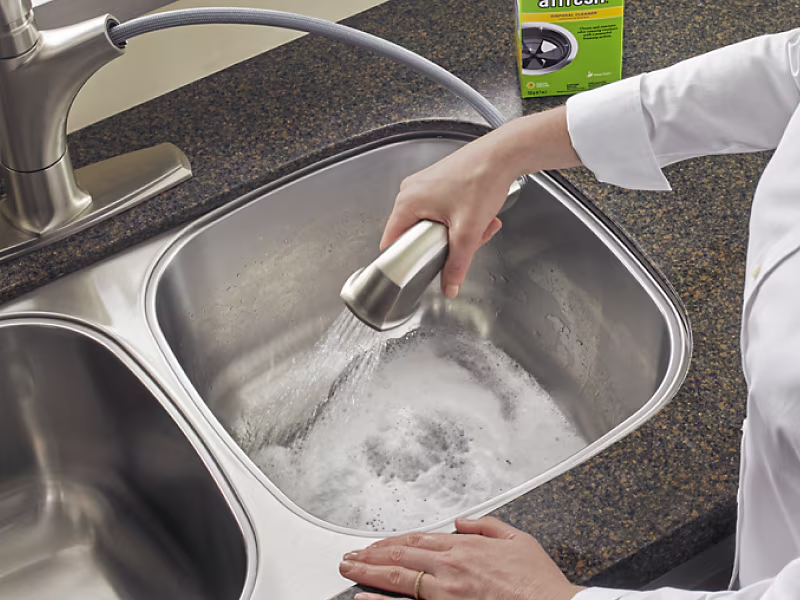Clearing out a clogged drain is a simple household task, and most of us instinctively reach for the chemical drain cleaner. The products, conveniently accessible in most retail establishments and often marketed as quick solutions, promise to dissolve hair, grease, and other clogs with nothing more than a minimal amount of effort. The reality behind chemical drain cleaners is far more complicated, however. While they may be attractively simple, they pose grave health and environmental risks. Being aware of the hidden dangers of chemical cleaners and finding alternatives for drain cleaning in Lockport, NY, will allow homeowners to make informed plumbing maintenance choices.

1. The Hidden Dangers of Chemical Drain Cleaners
Chemical drain cleaners typically contain harsh chemicals such as sodium hydroxide or sulfuric acid. When drained, the chemicals emit heat and corrosive activity to break down the clogs. Unfortunately, the very same processes that repel insects are able to shatter pipes, especially older metal or PVC piping. Inhalation of the fumes can also lead to respiratory irritation, and exposure to the skin may lead to burns or allergic reactions. Chronic use over time may ruin plumbing systems and eventually lead to very costly repairs that are many times the cost of the convenience of a quick fix.
2. Environmental and Health Concerns
The safety concerns of the chemical cleaner extend well outside your home. Once rinsed down the drain, the chemicals can flow through wastewater systems, disrupting water treatment processes and harming aquatic life. Storage or disposal of the products in the wrong manner also increases the potential for accidental poisoning in households with pets or children. Even unscrewing a bottle of drain cleaner can expose you to dangerous fumes. In homes dedicated to sustainable practices, the use of chemical cleaners is counterintuitive to the goals of sustainability. Having alternatives will save your health and environmental footprint.
3. Effective Natural Alternatives
There are some safer methods for unclogging drains that don’t involve harsh chemicals. A mix of vinegar and baking soda is also a widespread and effective technique that creates a fizzing reaction to break up clogs. Boiling water can be used to clear kitchen sink grease clogs if applied regularly. Mechanical devices such as plungers and drain snakes provide immediate control without releasing harmful chemicals. Enzyme-based drain cleaners, which use natural bacteria to digest organic waste, offer yet another non-toxic and environmentally-friendly option. Not only do these products work well, but they are also gentler on your pipes and the earth.
4. Preventative Maintenance is Key
Preventing clogs from occurring in the first place is the most effective way of limiting the use of any kind of drain cleaner. Never pour food waste, coffee grounds, and grease down the kitchen drain to keep pipes as free as possible. In the bathroom, installing drain strainers can catch hair and soap scum before they cause trouble. Running hot water after each use prevents debris from clogging pipes. Regular plumbing inspections also catch small problems before they become huge blockages. A proactive approach to plumbing care will minimize emergencies and the temptation to reach for harsh chemicals.
5. When to Call a Professional
Despite your best efforts, some clogs are simply too stubborn for DIY methods to handle. If water backs up repeatedly or drains slowly, even after multiple attempts to clear it, it’s time to call a plumber. Experts have access to high-quality equipment like hydro-jetting systems and video inspection equipment that can diagnose and repair deep clogs safely. Turning the job over to the experts allows the problem to be fixed without threatening your plumbing. It also prevents repeated poisonings from chemical drain cleaners, which might cure symptoms but not the issue. It is important for long-term home maintenance to know when professional help should be called in.
Chemical drain cleaners might get rid of the problem for a short while, but their plumbing, health, and environmental risks render them a poorly considered choice in the long run. Property owners can keep their loved ones and homes protected through better knowledge of these risks and by embracing safer alternatives. Adopting natural remedies and preventive methods not only reduces exposure to harmful chemicals but also encourages healthy living. Being vigilant and proactive is the key to possessing a clean and secure drainage system. In case of really tough clogs, it is always best to invest in professional plumbing services.
FAQs
1. Are chemical drain cleaners safe to use on all pipe types?
No, chemical drain cleaners can weaken metal and PVC pipes over time, especially with frequent use. They can also damage seals and fixtures, leading to leaks and expensive repairs.
2. What should I do if I accidentally inhale fumes from a chemical drain cleaner?
Move immediately to a ventilated area and see a doctor if you begin to develop dizziness, coughing, or shortness of breath. Be very careful when working with chemical products and always ensure ventilation.
If you’re struggling with a persistent drain issue, skip the harmful chemicals and opt for safe, effective sewer cleaning in Lockport, NY. Contact a licensed local plumbing professional at The Plumber Heating and Cooling at 716-260-1380 for reliable service and eco-friendly results that last.



